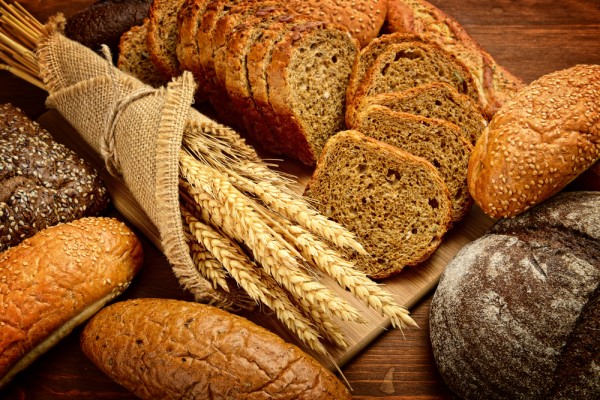Sales of gluten-free products have skyrocketed over the last few years. In the UK alone, sales have increased by 15% since 2013 with sales reaching £184 million in 2014. Another report showed that 15% of UK households were trying to cut out gluten entirely. This phenomenon is certainly interesting, but what spawned this new gluten-free craze?
Coeliac Disease and Increased Diagnoses
One of the most obvious contributors to the gluten-free industry is the growing community of coeliac disease sufferers. Coeliac disease is a condition in which the body creates a negative autoimmune response when digesting gluten. This is often manifested by attacks on the small intestine that limit proper nutrient absorption. If you have coeliac disease, you can experience pain, fatigue, gas, bloating, diarrhoea, and/or constipation when consuming foods with gluten in them.
That being said, the criteria for coeliac disease are very simple to determine. It takes a blood test and an intestinal biopsy to identify a reduction in nutrient absorption. Only around 1% of the global population currently suffers from coeliac disease, although that number is growing exponentially. Still, it doesn’t account for the massive increase in gluten-free product sales in recent years.

Gluten Intolerance
Another factor that contributes to gluten-free product sales is an increase in what’s known as gluten intolerance (or gluten sensitivity). Although dismissed by doctors early on, gluten intolerance is an ailment that is gaining traction in the medical community.
Gluten intolerance essentially occurs when a person experiences all the symptoms of coeliac disease without a verifiable diagnosis for the disease, meaning gluten may still make you sick in the absence of a coeliac diagnosis. This has led more people to the “gluten elimination” diet. If you eliminate gluten from your diet and experience a reduction in symptoms, then it certainly makes sense to continue employing the diet.
Is It All Just a Fad?
The answer to this question is tricky. For coeliac sufferers and those with gluten sensitivity, a gluten-free diet is vital for a healthy life. In fact, those with coeliac disease can develop much more severe ailments ranging from chronic fatigue syndrome to intestinal cancer. Of course, a gluten-free diet solves all those issues.
Even so, patients with coeliac disease and gluten intolerance account for only 56% of the gluten-free market. Although that’s still a majority, 44% of the gluten-free market exists purely for the diet’s perceived health benefits. There is little evidence that a gluten-free diet is any better than a standard diet for the general population.
This is because gluten isn’t a universally negative food item. Of course, the risk of incurring coeliac disease diminishes significantly if you cut gluten out of your diet (particularly at a young age). And, a gluten-free diet can offer just as many nutrients for non-coeliac as it does for those living with the condition.
The benefits of a gluten-free diet for those with some kind of gluten intolerance are undeniable. Gluten acts like a poison to their bodies, and more diagnoses continue to be made every day. Because of this, gluten-free products can never be considered a fad. While many may be hopping on the “new diet” bandwagon, they don’t account for the sustainable gluten-free market going forward. In large part, gluten-free products are sold to those who actually need them.
By Harry Price
Harry Price is a writer from a small fishing village on the south coast. He lives with his wife and 3 dogs. They all enjoy long costal walks, especially on a wet and windy day.



